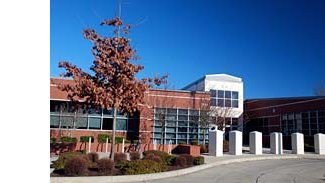Safety is essential while transitioning from response to recovery. The Oregon Health Authority, Public Health Division offers advice for flood response and recovery in this Press Release (January 20, 2012; media contact is Kathleen Vidoloff, email: Kathleen.G.Vidoloff@state.or.us)
January 20, 2012
Oregon Public Health gives tips for staying healthy and safe during winter storms
Several Oregon counties have experienced flooding due to the winter storms that moved into the area earlier this week. Oregon Health Authority’s Public Health Division wants to offer simple tips on how Oregonians can stay safe and healthy during inclement weather.
“The floods this week will leave devastation behind them, and people will want to clean up and repair their homes and communities as soon as possible so they can move forward with their lives and livelihoods. Some simple precautions can help protect their health as they do so,” said Mel Kohn, M.D., M.P.H., Oregon Public Health director.
Some tips to be safe during and after the storm:
• Injury prevention: Stay out of flood waters. Even the strongest swimmers can drown in flood waters. Do not drive through standing water. Never make contact with power lines or objects that are in contact with power lines. Wear eye protection when cleaning up storm debris.
• Water: Check for local boil-water advisories. Do not use contaminated water to wash dishes, brush teeth, prepare food, make ice or make baby formula.
• Well water: If your well has been affected by flood waters, it is recommended that you boil your water for at least one minute at a rolling boil, or purchase water from a safe source. Before resuming normal use of the well, have the water tested for possible bacteria and pollutants.
• Foods: Do not eat foods that have come in contact with flood waters. Throw away food that cannot be kept cold or properly heated due to lack of power.
• Carbon monoxide poisoning: Don't use a generator, pressure washer, charcoal grill, camp stove, or other gasoline- or charcoal-burning device inside your home, basement, or garage or near a window, door, or vent. Carbon monoxide is a colorless, odorless gas. If carbon monoxide poisoning is suspected, seek fresh air and consult with a health care professional right away.
• Home safety: If there is standing water in your home, never turn power on or off yourself – contact an electrician.
• Chainsaw safety: Wear appropriate clothing, such as safety glasses and heavy work gloves. Always cut at waist level or below. With an electric chain saw, use extreme caution to avoid electrical shock. Avoid contact with power lines.
• First aid: Immediately clean all wounds with soap and clean water. If your skin or eyes come in contact with hazardous materials wash thoroughly with decontaminated water. Avoid getting cut because cuts can lead to tetanus. If possible, make sure your tetanus vaccination is up to date.
• Mold: Remove mold by washing with soap and water and letting surfaces dry completely. Some materials such as moldy clothing, ceiling tiles and sheet rock may have to be replaced. If mold-related illness is suspected, consult a health care professional.
For more information about injury prevention, food safety, wells, drinking water, and carbon monoxide during and after flooding, go to public.health.oregon.gov.
Friday, January 20, 2012
Subscribe to:
Post Comments (Atom)







No comments:
Post a Comment